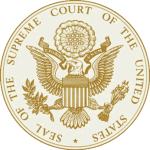Summary: Glossary – Judiciary
29th August 2015
Glossary – Judiciary
Appellate court
A court that hears appeals; not a trial court; an appeals court.
Civil liberties
Rights and freedoms that provide an individual specific rights Civil liberties include the rights of people, freedom of religion, and freedom of speech, and additionally, the right to due
process, to a trial, to own property, and to
privacy.
Civil rights
Rights to personal liberty established by the 13th and 14th Amendments to the U.S. Constitution and certain Congressional acts, esp. as applied to an individual or a minority group.
Constitutionalism
The principles of constitutional government or adherence to them.
‘Court packing’
An unsuccessful attempt by President Franklin D. Roosevelt in 1937 to appoint up to six additional justices to the Supreme Court, which had
invalidated a number of his New Deal laws.
‘Gerrymandering’
The dividing of a state, county, etc., into election districts so as to give one political party a
majority in many districts while concentrating the voting strength of the other party into as few districts as possible.
Judicial activism
The practice in the judiciary of protecting or
expanding individual rights through decisions that depart from established precedent or are independent of or in opposition to supposed constitutional or legislative intent.
Judicial decisions
The determination by a court of competent
jurisdiction on matters submitted to it.
Judicial restraint
A refraining in the judiciary from departure from precedent and the formulation of broad doctrine
Judicial review
The power of the judiciary to review laws and governmental actions to see whether they
conform to the Constitution. If they violate the Constitution, the court has the power to
overturn them.
Loose Constructionists
Those who ‘read between the lines’ when
interpreting the constitution, looking for implied meaning rather than explicit meaning.
Original intent
A conservative theory in constitutional law: only those guarantees intended by the framers and set forth in the text of the Constitution are valid
Original jurisdiction
The authority of a court to be the first to hear a case. It is unlike appellate jurisdiction, which
authorizes a court to review cases tried by
another court.
Rule of law
An authoritative legal doctrine or principle
applied to the facts of an appropriate case rule of law that is most persuasive in light of precedent, reason and policy.
Strict Constructionists
Those who interpret the constitution literally, looking for explicit meaning rather than implicit meaning.
Writ of certiorari
An order from an appeals court, such as the U.S. Supreme Court, stating that the court will hear a case. These writs are granted by appeals courts that have discretionary jurisdiction.


0 Comments